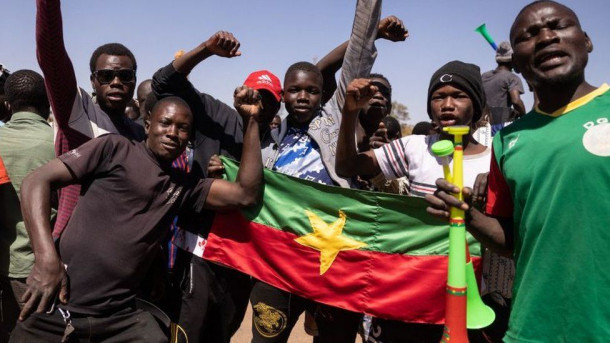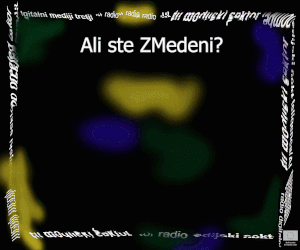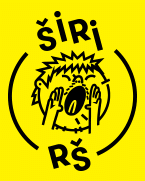Why coups have been supported in fragile countries in West Africa
In the last two years, three fragile countries in West Africa – Mali, Guinea and Burkina Faso – succumbed to instability and experienced
military takeovers. While the COVID-19 pandemic may have played a role in pushing these countries over the edge, they were on the precipice
of instability long before the emergence of the virus due to deep-seated vulnerabilities such as chronic insecurity, political corruption
and mass unemployment.
Indeed, in all three countries, military interventions came not as a surprise but on the back of long-ignored systemic failures and growing
societal discontent.
In Burkina Faso, repeated attacks by armed groups and a failure to govern (partly evidenced in the apparent ill-equipping of the country’s
security forces against such groups) created a security vacuum. Attacks in November and December 2021 left nearly 100 members of the
security forces and community defence volunteers dead. The army blamed its failure to adequately respond to these attacks on the government.
As a result, in late January 2022, what initially appeared to be a mutiny turned into a coup that toppled the country’s civilian government.
In Mali, attempts by the ruling party to manipulate the results of the 2020 parliamentary elections in favour of candidates supported by
the then-president led to street demonstrations during which aggrieved masses called on the government to resign. After months of impasse,
the military took advantage of the situation and staged a coup in August 2020. It initially facilitated a transitional arrangement but
overthrew that too only a few months later.
In Guinea, the September 2021 military coup was the consequence of a months-long political crisis, triggered by President Alpha Conde’s bid
to remove presidential term-limit restrictions through a constitutional referendum in March 2020 – a move that allowed him to seek a third
term in office. Both the referendum and the October 2020 presidential election, which resulted in Conde’s re-election, were marred by
boycotts from the opposition and civil society groups, and violent altercations between protesters and security forces that resulted in
hundreds of deaths. Despite all the turmoil, Conde received support from leaders of neighbouring nations, who did not hesitate to send him
congratulatory messages after his re-election. But amid widespread opposition to his rule, multiple socioeconomic crises and infighting
among his top military aids, even regional support did not save Conde’s presidency. Less than a year after his controversial re-election,
a coup removed him from power.
None of these coups, or the challenges that led to them, materialised suddenly. International development organisations and think-tanks
have been pointing to the extreme security and governance challenges facing these countries for years. Even before the beginning of the
COVID-19 pandemic, US-based think-tank The Fund for Peace had rated these countries as on “high warning” or on “alert” in its Fragile
States Index, suggesting that their vulnerabilities could lead to instability if not outright armed conflict. Similarly, the Economist
Intelligence Unit, in its Democracy Index of 2019, had suggested that there was a steady decline in the quality of democratic governance
in Burkina Faso, Guinea and Mali.
Beyond the long-term threats to constitutional democracy and security they were born out of, the recent coups in these three countries had
another surprising common aspect: civilian support.
In countries with relative stability and security, as well as functioning constitutional guardrails against threats like electoral fraud,
manipulation of courts, and illegal attempts at presidential tenure elongation, armed forces may stage coups, but they often fail to
convincingly justify their intervention or gain the support of the majority of the population.
In Mali, Burkino Faso and Guinea, however, the lack of such safeguards resulted in civilian populations enthusiastically embracing the
recent military interventions.
Indeed, citizens in these countries responded to the news of military takeovers with protests, not against the intervening military, but
the removed political leaders. In further legitimising the putschists, citizens in Burkina Faso, Guinea and Mali have accused their former
colonial masters of being complicit in their plight and rejected external interventions and sanctions – mainly imposed by the regional
political block ECOWAS – meant to hamstring the military and compel them to accept proposed conditions for democratic elections and return
to “constitutional” rule.
This reaction was a reflection of the masses’ lack of faith in the state of democratic politics in their countries, and it may have
significant consequences not only for Mali, Burkina Faso and Guinea, but the wider region.
Firstly, widespread civilian support for these coups reinforces the notion that the armed forces are the guardians of states. Convinced
that existing constitutional processes are not adequate to support good governance in their countries, citizens in Mali, Burkina Faso and
Guinea appear to believe that the military may be a credible alternative to the band of corrupt and unrepentant political elites that have
betrayed their confidence. This sentiment could lead not only to the military retaining significant influence over politics in these
countries in the long term, but also to the legitimisation of attempts to reintegrate militaries into politics across the continent.
So far, all attempts by regional bodies like ECOWAS and the AU to turn back this trend have failed, largely because such attempts focused
on punishing the militaries rather than understanding and attempting to help fix the underlying causes that led to civilian populations
supporting their actions. As a result, the recent wave of military coups in Africa has raised questions about the role regional and
continental multilateral organisations can play in averting democratic backsliding.
Today, citizens in Mali, Burkina Faso and Guinea clearly feel that they have “found their voice”, and punished corrupt political elites
who have long ruled their countries, by ascribing legitimacy to military takeovers. The legitimate fears that citizens across the
continent can follow their lead can put underperforming democratic rulers on their toes and push them to swiftly and efficiently address
political and socio-economic challenges facing their countries. Of course, whether this trend will have long-term consequences for the
wider region will be dependent on how the militaries will choose to manage state-society relations, and whether they will be able to
maintain public support.
Whatever happens in Mali, Burkina Faso, Guinea and other African nations that have experienced coups in recent times, if the continent’s
Democratic leaders and multilateral bodies continue to ignore the conditions that triggered this new wave of military interventions, what
we have witnessed so far might very well be a foretaste of what is to come.
Folahanmi Aina
PhD Fellow at the African Leadership Centre (ALC), Kings College London.
Ibrahim Al-bakri Nyei
Non-resident Fellow at the Centre for Democracy and Development (CDD West Africa

















Prikaži Komentarje
Komentiraj